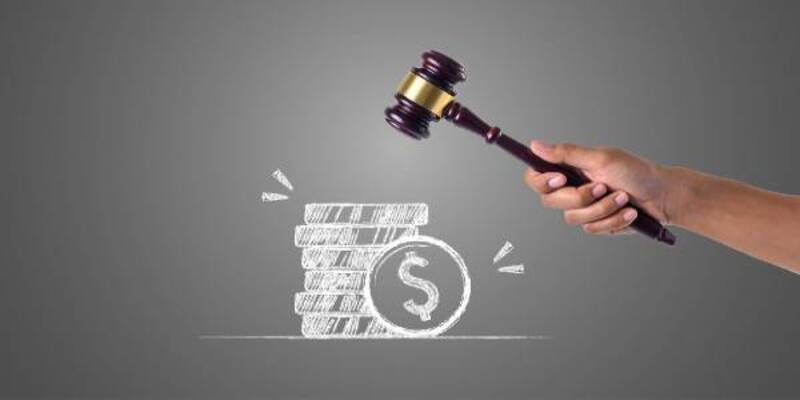Selling your business should be a carefully planned endeavour to optimise profits from the transa
... ction. It can be emotionally distressing for entre...
Selling your business should be a carefully planned endeavour to optimise profits from the transaction. It can be emotionally distressing for entrepreneurs but should be viewed as a professional goal from the beginning to make the exit easier. Exit or succession planning must become a part of the entrepreneurial journey to streamline the transition. It is also necessary to ensure the sale brings generous income that can be used for future ventures or retirement plans. Entrepreneurs must avoid conducting the valuation themselves and use an expert accountant.
The professionals are adept at business valuation and use various financial ratios to determine the right price for the entity. They can also help entrepreneurs set the price appropriately to prevent losses due to negotiations from potential buyers. The price should recover the costs incurred during the transaction and leave behind a significant income to enjoy retirement. Here is a breakdown of the costs incurred when selling a business. These should be calculated to set the correct price for the listings.
1. Legal Costs During Business Sale

Since selling a business requires signing a legal contract that a specialised lawyer prepares, the business owner will incur specific legal costs. The buyer will also hire a solicitor for the final transaction and understand the legal jargon in the agreement. Both parties must be aware of their responsibilities during and after the leadership transition. The seller’s solicitor will assist the buyer in completing due diligence and reviewing all the legal contracts of the business.
Entrepreneurs must ensure that all financial documents and agreements are well organised and prepared for assessment. The agreements that will be transferred to the new owner must be evaluated, and changes should be made to the contracts accordingly. For example, alterations to employees, commercial leases, intellectual property, and supplier contracts must be included in the legal work associated with business sale. Usually, the legal costs make up to 1% of the selling price.
2. Accounting Fees for Valuations
When an entrepreneur decides to put up his business for sale United Kingdom, they must keep the accounting fee in mind to set the right asking price. The professional will examine all the financial records and historical data to understand the stability of the entity and its future potential. They also study the market trends to understand the sale price of similar entities in the same location. It helps them compare valuations to meet market standards. They check every detail carefully to determine the right price for the business, including assets, liabilities, tax history, accounts payable, accounts receivable, etc.
They must help the buyer review the accounts after signing the non-disclosure agreement to understand the viability of the acquisition. Entrepreneurs can use their business accountants for this task. However, if they are not experienced in business valuations, they may have to hire an expert, who can charge anywhere between £250 and £5,000.
3. Business Revamp Overheads
One of the significant expenses during a business sale is overhauling the entity to make it presentable and ready for due diligence. It requires refurbishing the workplace to make it attractive to potential buyers. In addition, the business should have a positive cash flow to grab the attention of buyers looking for lucrative business opportunities in the United Kingdom.
The outgoing owner must focus on increasing profits and decreasing operational expenses in the countdown to the sale. They must ensure high performance to get the stated asking price and enjoy a high return on investment. They can boost revenue by selling more to existing customers, offering incentives to new customers and reducing overheads through cost-cutting measures and sustainability efforts.
4. Marketing Expenses for Business Sale

Putting up a business for sale is easier than ever with dedicated business buying and selling websites. These platforms help create a business listing that is viewed by thousands of interested buyers across the country. It increases the campaign's reach and helps find a qualified buyer quickly. Using these platforms, entrepreneurs can eliminate the cost of hiring a business broker.
These ads are also showcased on social media channels that have a large number of active users. It helps to spread the word and get several enquiries. With other marketing collateral, the promotion cost can range between 5% and 15% of the annual business revenue. Entrepreneurs can use their industry network and social groups to find an ideal buyer.
5. Screening Potential Buyers
Entrepreneurs who advertise their United Kingdom business for sale must screen the potential buyers before starting discussions. They must provide the non-disclosure agreement and all other data needed to complete the due diligence. In exchange, they must ask for their financial statements and background details.
It helps to ascertain the willingness of the enquirer to offer the price. Screening potential buyers will require a team of professionals who can take charge of these assessments and accountants who can review their financial records and funding sources. The team can also help close a favourable deal for the seller during the negotiations.
6. Tax Implications of Business Sale
Business owners must understand that they will have to pay taxes on the profit made from the sale of the business. It is known as capital gains tax, which is charged on the gain made on the asset's sale. The tax must be paid on selling business real estate, equipment, registered trademarks, goodwill, shares, etc. This tax is applicable to sole traders and partnerships.
The limited companies and unincorporated associations have to pay corporation tax. It can be calculated by finding the difference between the cost of setting up the business and the total sale price. The owner must deduct the costs incurred during the sale of the business, and the remaining amount is the profit. The tax will be charged on this gain made by the entrepreneur.
7. Other Costs of Business Sale

Besides these costs, entrepreneurs placing their businesses for sale in the United Kingdom marketplace have to bear the administrative expenses of the endeavour. They incur costs related to real estate, such as the sale of commercial property, which involves conveyance, real estate and mortgage redemption fees.
The outgoing owner must comply with legal regulations and maintain insurance coverage during the transition. They must include the cost of training and supporting the new owner during the integration if it has been included in the contract.
Wrapping Up
Selling a business becomes easy when the process is well defined and is supported by a team of experts. Entrepreneurs must leverage the expertise of solicitors, accountants and real estate agents to understand the costs and set the right asking price.

You can think of buying a new business like stepping into a moving train. The customers, staff and suppliers are all already part of the journey, but...

Buying a small business can be one of the best financial moves you've ever made. However, this only applies if you understand what you're entering...